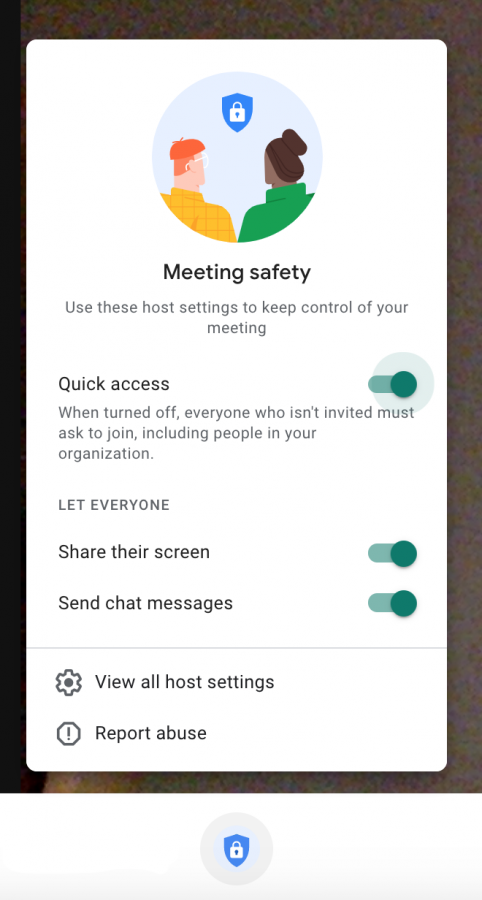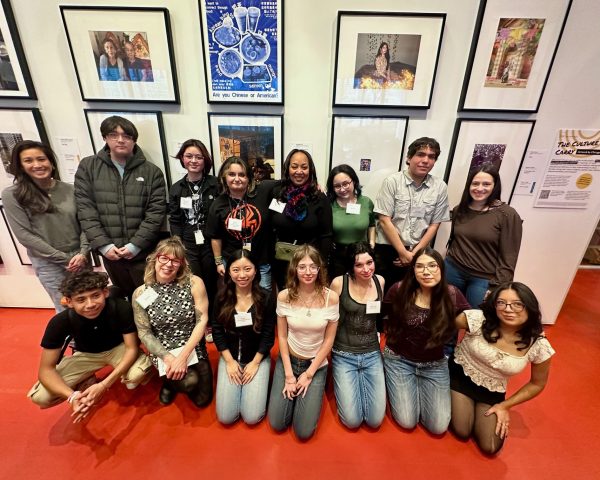Hate goes virtual
What seemed like an ordinary day in virtual education abruptly ended with ear-splitting, crackling static interrupting class.
Almost immediately, the caller blasted a recording with a particular student’s name, which went on to launch slurs towards the student and their identity, before a dumbfounded teacher scrambled to kick the bomber from the call.
“I was stunned into shock for maybe about three seconds, shocked that someone would do this,” the student said in an interview. If asked whether they’ve ever had a stranger invade their classroom, many of Lane’s teachers, even the most grizzled veterans, would say no. For many, that’s changed. “Zoombombing” or just “Bombing,” as it is known among students, is the interruption of a virtual class or chatroom by a stranger. Despite its name, it can happen on any other platform along with Zoom, including Google Meets. They can range from rude to hateful; for some students, like this one, their experience with in-class interruption has strayed towards the latter.
The student who was targeted said they felt the attack was not only personal because of the inclusion of their name, but also the subject matter of the interrupted discussion itself: Racism. “Human Rights” as the student would later say.
To the student, it was indicative of some of the warped and hateful feelings all too present not only in the country as a whole, but also in those that make their way into our school — ideas that demand rebuttal not only from administration, but students themselves.
“Make sure you’re always going to stand next to your friends of color, your queer friends, always,” the student said.
As for the class itself, it was promptly dismissed, but not before the student could give some parting words, delivered with an impressively cool head: “To anyone who thinks racism doesn’t exist; here’s proof.”
The teacher of the class said in an email interview that they spoke for all of their colleagues who’ve dealt with similar interruptions when saying that they felt the “sanctity of their classroom had been broken.” Not only did this experience remind the teacher of their privilege, but also strengthened their resolve as an educator.
“It reminded me of the responsibility I have to educate people in hopes of eradicating such ignorant hatred and hateful language,” the teacher said.
Zoombombings that aren’t regarded as hateful or extremely disruptive interruptions may include loud music or harmless jokes, but even these are harmful in their own right, especially in a year when every minute is valuable for a teacher’s already truncated lesson structure.
A different student targeted in a separate hateful incident agrees.
“[A Zoombombing] can literally cancel school for a class. It cancels a valuable day you could’ve spent learning. Especially in a high credit AP class,” the student said. “They need that time.”
This second student was on the receiving end of some truly awful language (too graphic to quote here). As for how they would describe the experience and the perpetrator themselves, the words “pathetic,” “immature” and “stupid” came to mind.
Assistant Principal Sarah Hanly and the deans seem to have at least an idea of who’s behind most of the interruptions.
“To be honest, I’m concerned that classmates would share the Meet links or phone numbers with offenders,” Hanly told The Warrior via email. “The only way outsiders can gain access is for someone inside the classroom to provide the information. I would hope our students know better than to do that. That does not live up to our motto of kindness, empathy and respect.”
As for prevention at the class level, the teacher said that there are methods for keeping strangers out that all teachers can follow.
“I had never altered the settings to restrict admission [to my class] so my students need to request admission,” the teacher said. “I also saw this setting as highly impractical as students are regularly booted from class.” Not only is this impractical, but it can be highly cumbersome, as teachers have to grant permission to enter the class manually for each student. And with many classes having upwards of 30 students, this can be hard.
Hanly confirmed that teachers can restrict admission to their classes.
“There are procedures available for staff to prevent this,” she said.
Zoombombing, whether through Zoom itself, Google Meets, or any other platform, is now illegal, punishable by fines or even possible prison time. The F.B.I. has also weighed in on the now federal crime, advising users of all telecommunication platforms to take the necessary precautions like locking chat-rooms, requiring passwords, and being altogether vigilant.
Restricting access is a cure for the symptoms, but not the disease, as the teacher pointed out: the access issue is not the main point that must be addressed.
“If students (and others) did not feel empowered to disrupt classes and/or spew hatred or inappropriate content to begin with, we would not be in this position,” the teacher said in an email. “Thus, I ask: How can we, as individuals and as a community, work to spread respect, kindness, openness, empathy, and an honest curiosity to learn about and possibly connect with others on a human level rather than enable an environment in which hatred, ignorance and division can grow and flourish?”
In a statement of good news for both students and teachers, Assistant Principal Hanly confirmed that no Zoombombing incidents have been reported in the last few weeks of november. That, however, does not mean these instances have stopped and does not erase the humiliation and fear some have suffered during a school year like no other.
“But I’m not the only person of color in this school that’s experienced racism. That’s not at all what I’m trying to say,” the first student said. “I wish that, as radical and progressive as many Lane students claim to be, they would hold true when stuff like this actually happens in class.”
Your donations directly fund the Lane Tech student journalism program—covering essential costs like website hosting and technology not supported by our school or district. Your generosity empowers our student reporters to investigate, write, and publish impactful stories that matter to our school community.
This website is more than a publishing platform—it's an archive, a research tool, and a source of truth. Every dollar helps us preserve and grow this resource so future students can learn from and build on the work being done today.
Thank you for supporting the next generation of journalists at Lane Tech College Prep!

Aidan is a senior in his second year at the Champion. In his spare time, Aidan likes reading, watching and playing soccer and re-watching The Sopranos....




